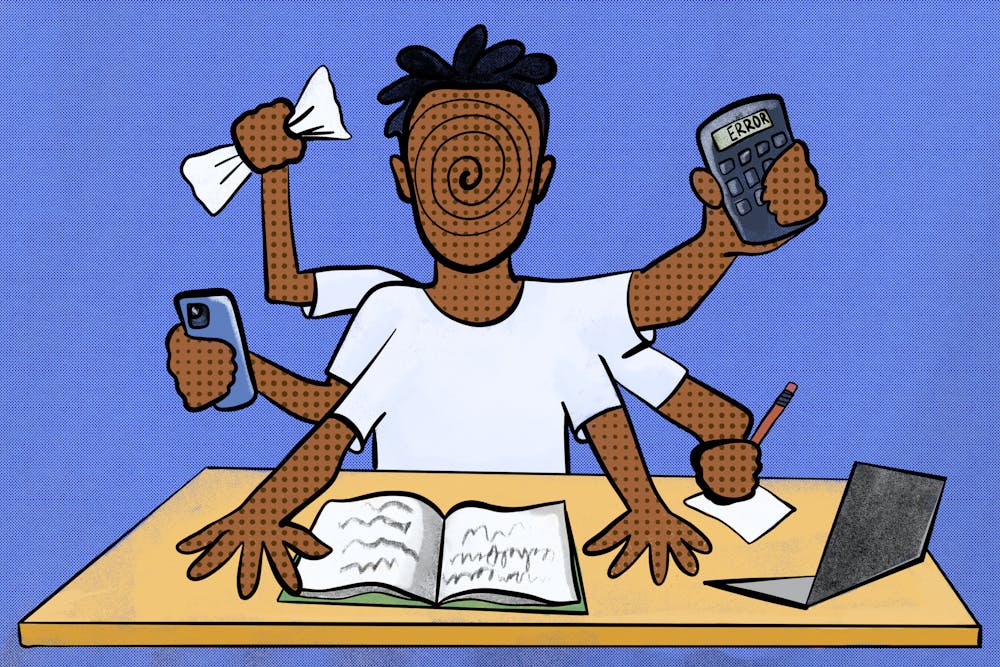As exam season arrives, USC students are beginning to start their study routines. For best performances on finals, students should pace their studying in order to review course material effectively.
Procrastinating studying and cramming information all at once may seem attractive and easy. Not doing schoolwork takes no effort at all. But working and taking the initiative to begin to study several days a week or more beforehand for best performance on exams takes effort and responsibility.
Discipline is required to effectively prepare for a final exam. For students, it means pacing their review over time, concentrating during study sessions and practicing effective study habits.
Finals summarize an entire semester's worth of content. This includes multiple units, concepts and ideas that have taken three months for students to learn. Exam content could be several historical time periods, one or more books, different scientific subjects and more. All that information cannot be relearned in one or two nights.
Research from Dartmouth University has found that spaced repetition enhances understanding, memorization, effectiveness and efficiency. Spaced repetition is the opposite of cramming: It involves revisiting information several times over days, weeks or months.
A cohesive analysis of 317 experiments found that as the time since originally learning a concept (the “retention interval”) increases, the amount of time required between study sessions for optimal retention also increases.
Because some concepts haven’t been revisited since August or early September, it is important to review them sooner and more times before being tested on them.
Study tools such as Quizlet and Knowt have programs that remind students to study at specific intervals based on knowledge and amount of topic. Those sites are especially helpful for vocabulary with terms and definitions.
Other strategies include breaking up topics or units over time. Creating a personal study schedule or marking topics on a calendar for the weeks leading up to an exam can keep spaced repetition on track.
However, it is not just important to pace studying but to also study effectively. Effectiveness includes both memorization and understanding of necessary content.
Memorization is important for material such as vocabulary, historical details and scientific or mathematic formulas. Without knowing key information, exams that encompass those concepts will be challenging. But it is also important to understand why a historical event might have occurred or how a scientific process works. These must be coupled together, and studying is required for both in order for students to do well on finals.
Repetition may be a key part of memorization. Online study tools can be used for studying vocabulary and other ideas that require memorization. Often these tools intentionally revisit missed concepts to ensure mastery.
Repetition and pacing go hand in hand. Memorization will be more effective if repetition is spaced over several days rather than a few hours.

Understanding material requires concentration. Learning styles can vary greatly, so it is important to know how one learns best. Having that knowledge can be key to tackling complex ideas.
It may be helpful to practice working out problems in order to master comprehension of difficult concepts, particularly with problem-based exams. To pace re-learning and understanding, smaller groups of practice problems can be done over several days instead of one large amount in one sitting.
Spaced repetition and pacing studying can be key to solid exam results on finals. The USC Student Success Center provides study tips as well for further help. Students should gift themselves high scores for Christmas by practicing effective study habits.

